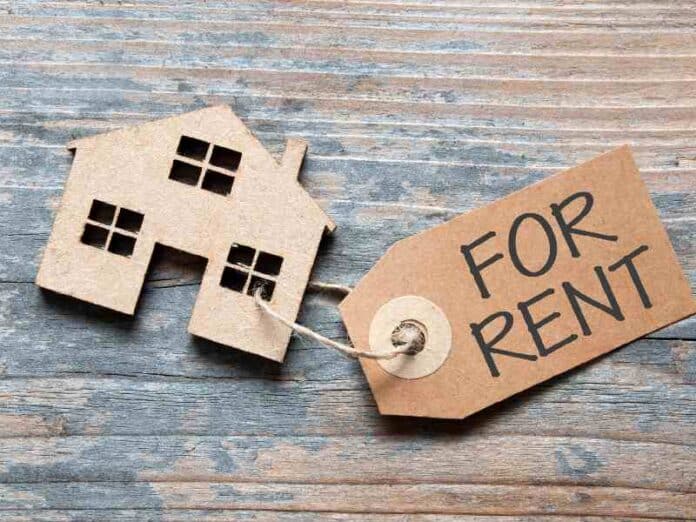
Reap the rich rewards of rent! The number of renter households rose by 4.8% between 2020 and 2021. Renting is becoming more affordable than buying and owning a home, making it great for people with low incomes.
Yet you shouldn’t rush to your rental home just yet. You need to think about home renter mistakes and take steps to save your money and time.
What do you need to do before you start looking at rental properties? How can you determine if a landlord is a good fit for you? How can you avoid problems with your landlord?
Answer these questions and you can enjoy a premium rental home in no time. Here are seven mistakes to watch out for.
1. Not Having Enough Money
Many people assume they have enough money to pay for a rental property. Even if you have enough money to cover the bills, your application may get declined if you have weak credit. You may be able to cover the monthly rent payments, but not utilities or services like phone and cable.
Before you start looking at properties, you need to look at your financial holdings and see that everything is okay. If you have weak credit or low savings, you must fix that before you move out. You may need to take a second job, pay off your student loans, and stop using your credit card.
2. Renting Out the First Property You See
Many people are tempted to move into the first home they come across. They want to get the home-hunting strategy out of the way and move on with their lives. But you may move into a property with faulty features or you may pay more than you should.
Take a look at a few properties in the same neighborhood and start comparing home prices. Find a home you can afford that gives you the amenities you need. If you’re reliant on public transportation, you should find a home near train and bus stops.
3. Missing Online Tenant Reviews
Online tenant reviews can tell you everything you need to know about your landlord. You should always read reviews to see if your landlord is a responsible professional who can resolve problems with the property quickly. If the reviews are bad, you should not rent a property from them.
If you can’t find any reviews online, you should ask the landlord for their references. Talk to past tenants and see if everything checks out. If a landlord is unwilling to provide references, you should not hire them.
4. Skipping Over the Lease Agreement
A lease agreement will outline all necessary policies. It will tell you what you need to pay rent and how you can avoid eviction.
Violating terms in the lease agreement is grounds for eviction. Sit down and read the entire thing word-for-word, and get help from a housing lawyer if terms seem confusing. You should look at your local tenant laws and make sure the lease agreement fits those laws.
You must follow the terms of the home rental agreement once you’ve signed it. This means that you may be responsible for cleaning, maintenance, and repairs. If you’re not willing to be responsible for these things, you should not move in.
5. Moving in Without a Walkthrough
A walkthrough lets you see the property for yourself. It lets you determine if the house is a good fit for you, and it lets you spot problems you need to fix after you move in. Your landlord can also know what parts of the property have been damaged already, so you don’t have to pay for them.
Take photographs of what you see so you have additional proof that you did not cause any damage. Feel free to send the images to home professionals so they can tell you if anything looks suspicious or violates building codes.
6. Living Without Insurance
Insurance is not a necessary expense, but it can make your life significantly easier. If your home or property gets damaged or stolen, you can receive compensation. Buying insurance also makes you seem like a responsible homeowner, increasing your credibility with landlords.
Your landlord may offer you insurance. Read the terms carefully, as the insurance may apply only to the home and not your personal belongings. You need to purchase a renter’s insurance package in order to protect your items.
Photograph your items, keep receipts for them, and write a list of their monetary value. This lets you claim compensation easily if they get damaged. You should also find a place to store your documents and valuables, like a basement or attic.
7. Losing Contact With Your Landlord
After you’ve moved in, you should remain in touch with your landlord. Talk to them on the phone once a month and tell them about how things are going. If you ever need to make major repairs to the property, you should let them know so they can help you.
Keep in mind that your landlord can sell your home and ask you to move out at any time. Be ready to move out and maintain your savings so you don’t have problems. Click for rental properties and have backups in case you need to leave quickly.
Avoiding Home Renter Mistakes
Avoiding home renter mistakes must be your top priority. Save up money and spend time looking at several properties and landlords. Read reviews of each landlord you are considering and avoid anyone with a bad track record.
Read the lease agreement and then go on a house tour to make your final decision about moving in. After you move in, you should buy insurance to cover your personal items. Maintain contact with your landlord so you can resolve issues.
Renting is harder than it looks. Read more guides on home renting by following our coverage.

